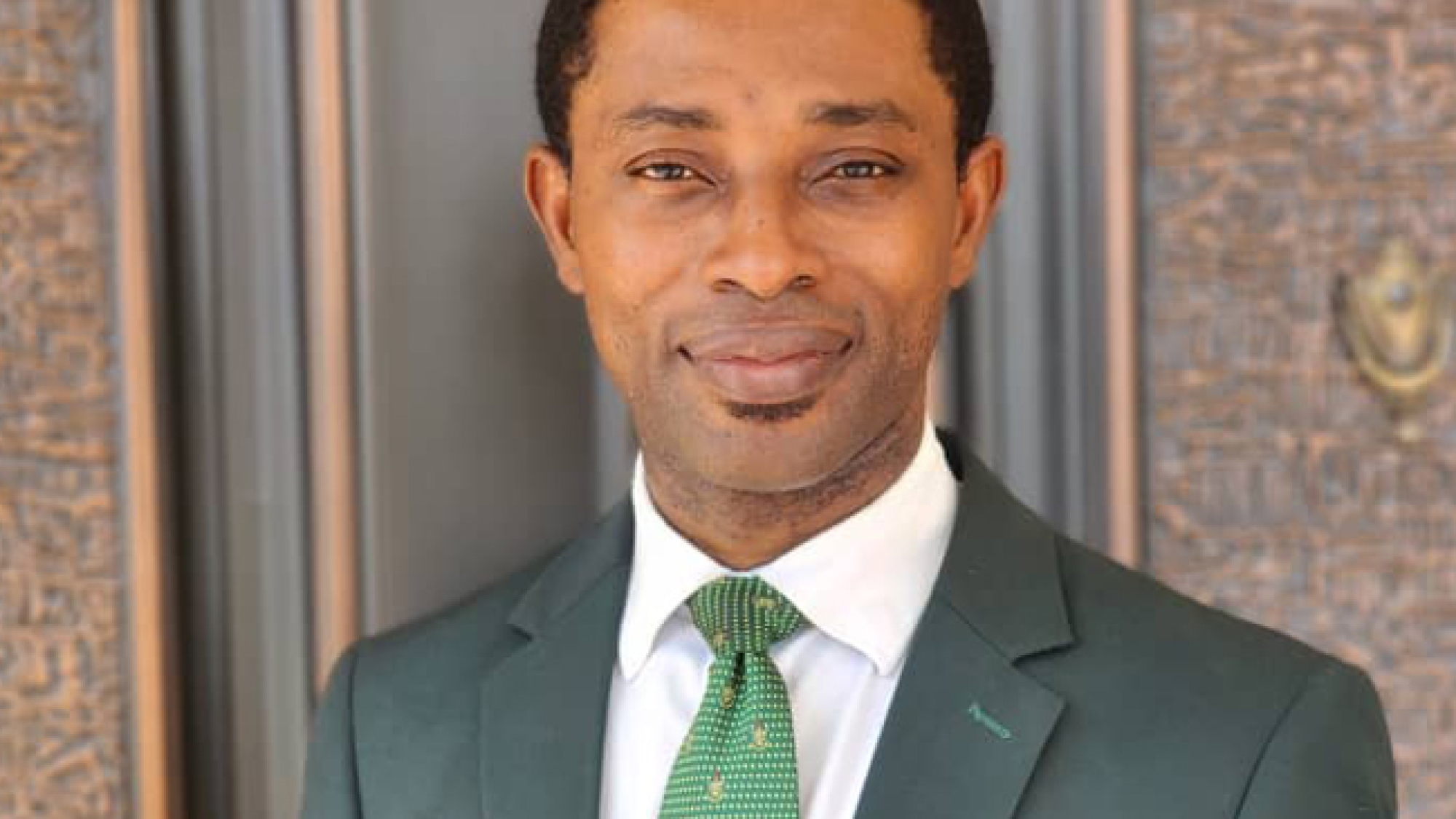In the annals of history, the final seven days of Jesus Christ’s earthly ministry resonate as a profound narrative of human betrayal juxtaposed with divine redemption. Chronicled in the Gospels, these days unfold with a succession of pivotal events, ultimately leading to the crucifixion and resurrection of Jesus—a cornerstone of the Christian faith. As Easter approaches, it is fitting to delve into the depths of each day, unravelling the intricacies of Christ’s interactions, the fulfilment of ancient prophecies, and the trials he endured. From the triumphant entry into Jerusalem to the solemn agony in Gethsemane, from the unjust trials before religious and political authorities to the ultimate sacrifice on the cross, every moment of this sacred week reverberates with profound significance. These seven days serve as a poignant reminder of humanity’s capacity for betrayal and the boundless love of God, culminating in the transformative power of Christ’s resurrection. As we journey through these pivotal events, we are invited to contemplate the essence of faith, forgiveness, and redemption, finding solace and hope in the promise of Easter’s dawn.
SATURDAY: ANOINTED BY MARY
In the heart of Judea, an intimate scene unfolded, immortalised by Mary of Bethany’s profound act of devotion. John 12:1–11 recounts the moment as Mary anoints Jesus with costly perfume, a gesture of unparalleled reverence and love. This touching event finds parallel retellings in Matthew 26:6–13 and Mark 14:3–9, though Mark’s account situates it in Galilee, offering a nuanced perspective on the story’s setting.
Amidst this act of devotion, the contrasting figures of Mary and Judas emerge, emblematic of righteousness and betrayal, respectively. Proverbs 10:7 speaks to this dichotomy, declaring the blessed memory of the just and the eventual decay of the wicked’s name. Mary, embodying righteousness, bestows upon herself a legacy of virtue, echoed in Ecclesiastes 7:1, where the value of a good name surpasses even precious ointment.
In the intricate areas of discipleship, Martha, Mary, and Lazarus each play distinct roles. Martha’s dedication to service underscores the importance of practical ministry, while Mary’s act of worship exemplifies the essence of spiritual devotion. Lazarus, bearing witness to Jesus’ miraculous power over death, becomes a living testament to the transformative grace found in Christ.
Thus, in Mary’s anointing of Jesus, we find a profound expression of devotion, contrast, and witness. Her act, recorded across multiple Gospel accounts, transcends time and place, inviting us to reflect on the enduring power of sacrificial love and the complexities of discipleship. As we ponder the significance of Mary’s gesture and its symbolism, may we, too, be inspired to offer our lives as fragrant offerings unto the Lord, securing for ourselves a legacy of righteousness and blessed memory for eternity.
SUNDAY: THE TRIUMPHAL ENTRY
In the bustling streets of Jerusalem, a momentous event unfolded on Sunday, etching itself into the annals of history—the triumphal entry of Jesus Christ. John 12:12–19 vividly depicts this scene, where Jesus, mounted on a humble donkey, is hailed as a conquering king by adoring crowds.
This triumphal entry was not merely a spontaneous act but a deliberate fulfilment of Old Testament prophecy, as foretold in Zechariah 9:9. Jesus, by riding into Jerusalem on a donkey, openly declared Himself as the promised Messiah, the King of Israel. John 1:49 underscores this revelation, affirming Jesus’ divine identity and his role in fulfilling Messianic prophecy.
As Jesus made his triumphant procession into Jerusalem, the crowd swelled with diverse groups, each bearing witness to this extraordinary moment. Firstly, there were the Passover visitors, pilgrims from outside Judea, drawn by the festival’s sacred observance (John 12:12, 18). Secondly, among the throngs were the local residents who had recently witnessed the miraculous raising of Lazarus from the dead, a powerful testimony to Jesus’ divine authority (John 12:17). Finally, amidst the jubilant atmosphere, lurked the religious leaders, apprehensive about Jesus’ growing influence and the potential disruption it might bring to their authority (John 12:19).
In the convergence of these diverse groups, the significance of Jesus’ entry into Jerusalem is magnified. It marked the culmination of his earthly ministry, the public proclamation of his Messianic identity, and the fulfilment of ancient prophecy. As the crowds hailed Him with palm branches and shouts of “Hosanna,” they unwittingly participated in the unfolding drama of salvation, heralding the arrival of the long-awaited King. Thus, the triumphal entry foreshadows the redemptive work that Jesus Christ’s passion and resurrection would soon accomplish, marking a pivotal moment in history.
MONDAY: TEMPLE CLEANSING AND FIG TREE
On a fateful Monday in Jerusalem, Jesus initiated a series of events that would reverberate throughout history, beginning with the cleansing of the Second Temple and culminating in the symbolic cursing of a barren fig tree.
In Matthew 21:12–17, Jesus entered the temple grounds and was appalled to find it transformed into a marketplace, a den of thieves rather than a house of prayer. With righteous indignation, he overturned the tables of the money changers and drove out those who were buying and selling, purifying the sacred space from desecration. This dramatic act symbolised Jesus’ authority and his zeal for the sanctity of God’s house.
In a profound metaphorical gesture, Jesus then turned his attention to a fig tree, a common symbol in Jewish literature representing the nation of Israel (Matthew 21:18–22). Just as he found no fruit on the fig tree, he saw no spiritual fruitfulness among the religious leaders and the people of Israel. This spiritual barrenness was a manifestation of their hypocrisy and moral decay, mirroring the outward appearance of the lush but fruitless tree.
The fig tree’s fate symbolised a divine judgement upon Israel for failing to bear spiritual fruit. Jeremiah 8:13 and Hosea 9:10 reinforce this imagery, comparing Israel to a fruitless fig tree that faces the consequences of its unfaithfulness. Similarly, in Luke 13:6–9, Jesus tells the parable of the fig tree, emphasising the urgency of repentance before it is too late.
In cleansing the temple and cursing the fig tree, Jesus delivered a powerful message of warning and invitation to the people of Israel and all humanity. It was a call to genuine repentance, a plea to bear fruit in accordance with God’s will, and a reminder of the consequences of spiritual negligence.
TUESDAY: CONFRONTATION AND DISCOURSE
On a pivotal Tuesday in Jerusalem, Jesus engaged in intense confrontations with the Pharisees and Sadducees, delivering profound teachings and warnings that would shape the course of history.
Firstly, Jesus faced questions regarding his authority, the payment of tribute, the resurrection, and the greatest commandment, as documented in Matthew 21:23–27 and Matthew 22:15–40. In each exchange, Jesus demonstrated his wisdom and authority, challenging the religious leaders and revealing deeper truths about the kingdom of God.
In Matthew 21:23–27, Jesus countered the Pharisees’ inquiry about his authority with a question about John the Baptist, exposing their hypocrisy and evoking their fear of the people’s reaction. Later, in Matthew 22, Jesus skilfully navigated questions about paying tribute to Caesar, the resurrection, and the greatest commandment, affirming the supremacy of God’s authority and the importance of love in fulfilling the law.
Following these confrontations, Jesus delivered a scathing rebuke of the Pharisees in Matthew 23, condemning their hypocrisy, pride, and legalism. He warned the crowds against following their example, urging them to have humility and genuine righteousness.
The day concluded with Jesus delivering the Mount Olivet discourse, a prophetic teaching recorded in Matthew 24–25. From the Mount of Olives, overlooking Jerusalem, Jesus foretold future events, including the destruction of the temple, the signs of the end times, and the coming of the Son of Man. He emphasised the importance of readiness, faithfulness, and wise stewardship in anticipation of his return.
In these profound interactions and teachings, Jesus confronted the religious establishment, unveiled profound truths, and provided invaluable guidance for his disciples and all who would follow him.
WEDNESDAY: DAY OF SILENCE
As the tumultuous events of the week approached their climax, Wednesday stood as a sombre interlude of introspection and readiness. Amid mounting opposition and impending trials, Jesus embraced a day of silence, likely pondering the gravity of the sacrifice awaiting him on the cross. This brief respite amidst the storm offered a poignant moment for reflection and spiritual preparation as Jesus braced himself for the ordeal ahead.
THURSDAY: PREPARATION AND BETRAYAL
The penultimate day of Christ’s earthly ministry unfolded with a series of profound events, each laden with significance and foreshadowing of the impending crucifixion. The day commenced with meticulous preparations for the Passover, as described in Mark 14:12–16. Jesus instructed his disciples to prepare for the sacred feast, underscoring the symbolic importance of the impending meal. Amidst the hustle and bustle of Jerusalem, this act of preparation set the stage for the poignant events that would follow.
In the intimate setting of the Upper Room, chronicled in John 13–14 and Matthew 26:20–35, Jesus shared a final supper with his disciples. This Last Supper transcended mere sustenance; it became a profound sacrament (or ordinance) as Jesus instituted the ritual of communion, signifying the imminent sacrifice of his body and blood for the redemption of humanity. The act of foot-washing, a humble display of servanthood, underscored the essence of Christ’s teachings on love and humility.
As they departed the Upper Room and made their way towards Gethsemane, Jesus imparted crucial teachings, encapsulated in John 15–16. Here, he spoke of the vital connection between himself, his disciples, and the Father, preparing them for the trials and tribulations ahead. In the midst of impending darkness, Jesus illuminated the path of faith and resilience, urging his followers to abide in him.
Gethsemane, a garden of profound agony and spiritual struggle, became the backdrop for Jesus’ fervent prayer, as depicted in Matthew 26:36–56. Here, amidst the gnarled olive trees and the weight of humanity’s sin, Jesus wrestled with the daunting prospect of the cross. Yet, in surrendering to the Father’s will, he embodied the ultimate act of submission and love, paving the way for humanity’s redemption.
Even amid turmoil and impending betrayal, Jesus demonstrated compassion and power. Luke 22:50–51 recounts his final pre-Calvary miracle, as he healed the ear of Malchus, the servant of the high priest, amid the chaos of his arrest. This act of grace amidst the clamour of betrayal underscores Jesus’ unwavering commitment to love and restoration, even in the face of imminent suffering.
Thursday, with its sequence of poignant events, stands as a testament to the depth of Christ’s love and the magnitude of his sacrifice. In the final hours before his crucifixion, Jesus exemplified humility, resilience, and unfathomable love, offering a glimpse into the heart of God and the redemptive plan for humanity.
FRIDAY: TRIALS AND CRUCIFIXION
The final day of Jesus’ earthly ministry dawned with a flurry of unjust trials and orchestrated condemnation. Friday, the culmination of Jesus Christ’s earthly ministry, was characterised by a succession of unjust trials and his eventual crucifixion, all in fulfilment of prophetic scriptures and indicative of the depravity of humanity. From the moment of his arrest in Gethsemane to his crucifixion in Golgotha, Jesus faced a relentless onslaught of false accusations, mockery, and physical abuse.
The first unfair trial transpired as Jesus was interrogated by Annas, the former high priest, and subsequently subjected to a sham trial before the Sanhedrin (John 18:12–14, 19–24). Despite the absence of valid evidence and glaring legal violations, the Jewish leaders persisted in their quest to condemn Jesus, resorting to deception and manipulation to achieve their nefarious goals.
Continuing with the second unfair trial, Jesus appeared before Caiaphas and the Sanhedrin, where false witnesses were summoned in a futile attempt to secure a conviction (Matthew 26:57–68). Despite the discrepancies in their testimonies, Jesus faced humiliation and mockery, fulfilling prophecies concerning his suffering and rejection.
Subsequent unfair trials before Pilate and Herod further highlighted the perversion of justice, as political expediency took precedence over truth and righteousness. Despite Pilate’s acknowledgement of Jesus’ innocence and Herod’s curiosity, both leaders succumbed to pressure from the Jewish authorities, ultimately paving the way for Jesus’ crucifixion (Luke 23:6–12).
Throughout these trials, Jesus exemplified divine grace and sacrificial love, remaining steadfast in his mission despite unjust treatment. He forgave his persecutors and extended salvation to a repentant criminal, thereby fulfilling prophecies regarding his redemptive mission (Luke 23:39–43).
The journey from Pilate’s hall to Golgotha was fraught with further indignities and suffering as Jesus endured scourging humiliation and the excruciating ordeal of crucifixion (Matthew 27:27–31). Despite the agony he endured, Jesus remained resolute in his mission, bearing the full weight of humanity’s sin and suffering on the cross.
As Jesus hung upon the cross, fulfilling prophecies of his suffering and death, he extended forgiveness to his executioners and offered assurance of salvation to a repentant criminal (Luke 23:34, 43). In his final moments, Jesus cried out to God, surrendering his spirit and consummating his redemptive mission (Luke 23:46).
In the unjust trials and crucifixion of Jesus Christ, the Scriptures bear witness to the fulfilment of prophetic scriptures and the profound significance of his sacrificial death for humanity’s salvation. Despite the depths of human depravity and the injustice he endured, Jesus’ death on the cross became the ultimate expression of God’s love and redemption for humanity.
CONCLUSION
The final seven days of Jesus Christ’s earthly ministry encapsulate a profound journey through trials and triumphs, revealing the depths of human betrayal and the heights of divine redemption. These pivotal days, chronicled in the Gospels, bear witness to a series of events that culminated in the crucifixion and resurrection of Jesus, shaping the course of Christianity for millennia to come. Each day of this sacred week unveils a tapestry of intricacies—Christ’s interactions, the fulfilment of prophecies, and the endurance of trials—each contributing to the unfolding drama of salvation.
From the triumphant entry into Jerusalem on Palm Sunday to the poignant agony in Gethsemane, from the unjust trials before religious and political authorities to the ultimate sacrifice on the cross, every moment of these final days carries profound significance. Amidst the betrayals of Judas, the denials of Peter, and the abandonment of his disciples, Jesus embodies unwavering love and forgiveness, offering salvation to a fallen world.
The stark realities of human sinfulness and divine grace confront us as we reflect on the events of these seven days. Through the suffering and death of Jesus, we find redemption and hope as he bore our sins on the cross and conquered death through his resurrection. The final seven days of Christ’s ministry stand as a timeless testament to God’s boundless love and the gospel’s transformative power, inviting us to embrace the message of salvation and live in the light of Christ’s victory over sin and death.
If you have not yet accepted Jesus Christ as your Lord and personal saviour, I invite you to join me in this prayer for salvation:
Dear Lord Jesus,
I acknowledge that I am a sinner and humbly ask for Your forgiveness. I believe You died on the cross for my sins and rose from the dead. I repent of my sins and turn away from them. I invite You to come into my heart and life as my Lord and Saviour. I place my trust in You and commit to following You all the days of my life. Thank you, Jesus, for your love and grace. Amen.
In praying this prayer sincerely, you open your heart to receive the gift of salvation offered through Jesus Christ.
God be with you.
Written by Pastor Emmanuel Foster Asamoah (Abasraba District, Winneba Area)














